The Roots Party of Kenya, led by Prof. George Wajackoyah, has proposed a bold change to the structure of the National Police Service. The party suggests that senior police officers, particularly sub-county police commanders (OCPDs), be chosen through public elections, allowing local communities to have a direct role in selecting their law enforcement leaders.
Wajackoyah, who is eyeing the presidency in 2027, argues that this system would create stronger accountability within the police force. He believes that only officers with clean records and strong reputations should be allowed to hold these positions, ensuring the police serve the public with integrity.
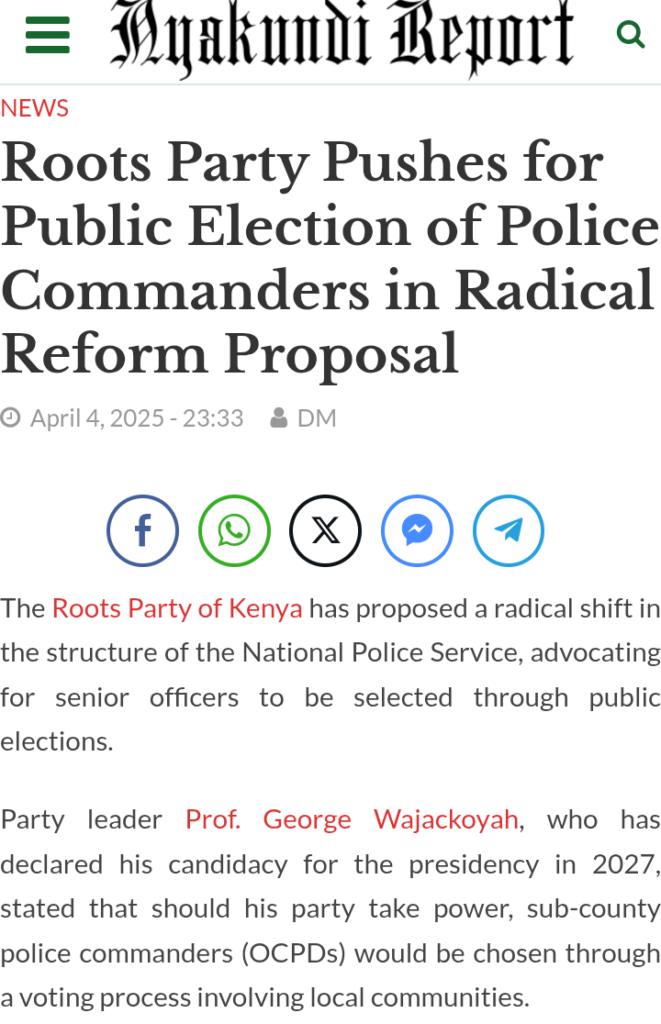
The process, as envisioned by the Roots Party, would begin with the National Police Service nominating suitable candidates. These individuals would then undergo a vetting process conducted by a county-level commission or board.
After this vetting, the names of the candidates would be made public for review by the community, allowing citizens to assess the candidates’ qualifications and suitability for the role.
Once the review period is over, the selected candidates would then face a public election, where local citizens would vote for their preferred candidate. Wajackoyah points to the United States as an example, where sheriffs and county attorneys are elected by the people.
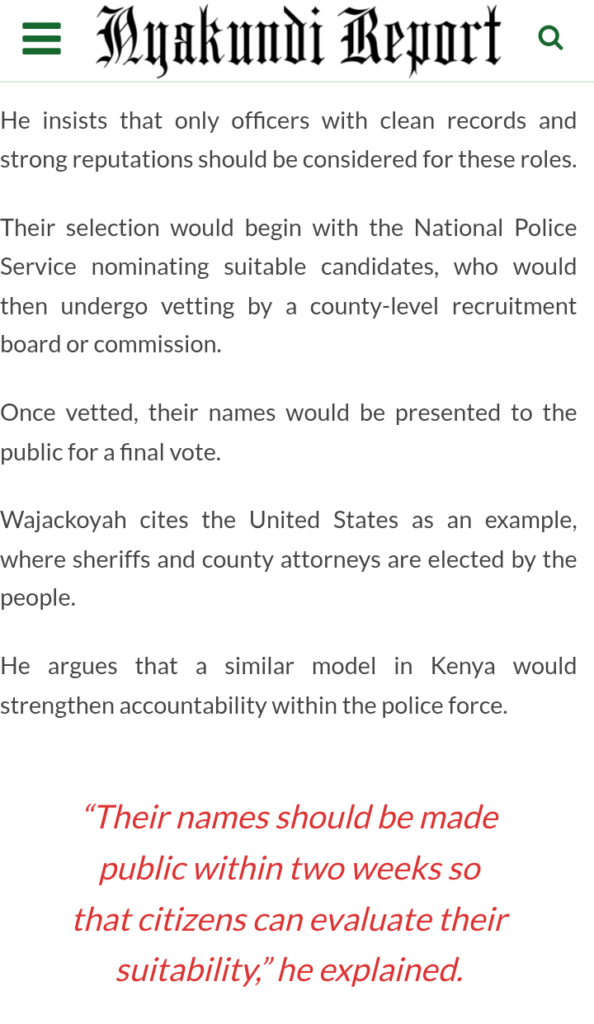
He argues that such a system in Kenya would promote transparency, help to curb corruption, and enhance governance in the police force. This approach, according to Wajackoyah, would ensure that senior law enforcement officers answer directly to the people they serve, rather than to political elites.
Wajackoyah’s proposal is part of a broader push for reforms in the police sector, especially in light of recent controversies.
One such controversy has involved the current Inspector General of Police, Douglas Kanja, who faced criticism after attending a political event during President William Ruto’s tour of the Mt. Kenya region.
Kanja’s appearance at the event, where he spoke alongside Ruto, raised concerns about the neutrality of the police force, particularly since the police are expected to remain impartial, especially during politically sensitive times.
His actions led many to question whether the police leadership had become too closely tied to the political establishment, which could compromise their role in serving all citizens fairly.
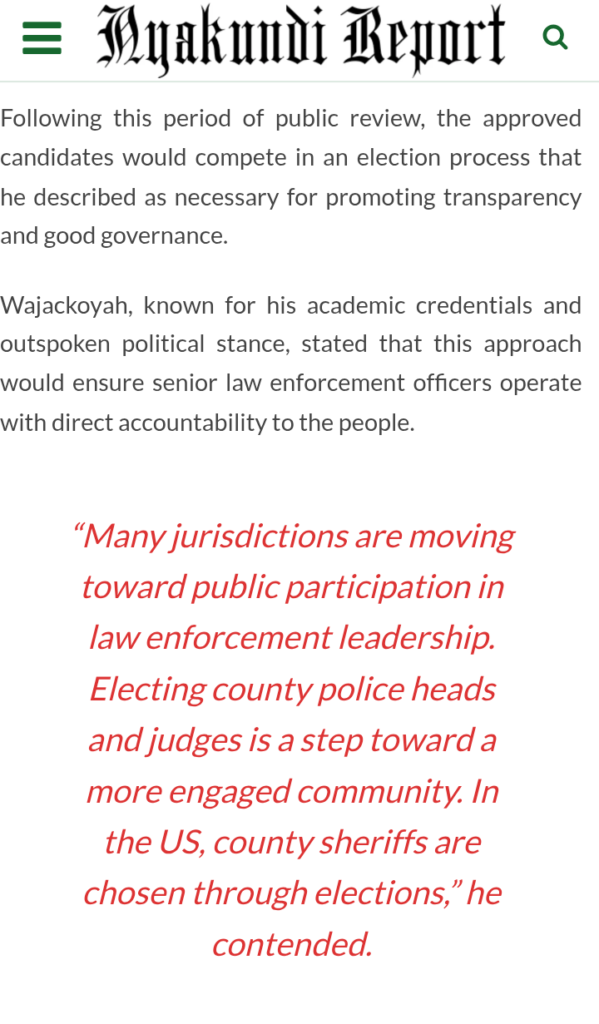
This debate comes at a time when the political dynamics in Kenya are shifting.
The impeachment of former Deputy President Rigathi Gachagua, political figure and ally of Ruto, has created a power vacuum in the region. President Ruto’s visit to the Mt. Kenya area is seen as an attempt to consolidate his political support in light of the recent developments, including Gachagua’s downfall.
The involvement of Kanja, a native of Nyeri County, in this politically charged situation adds another layer of complexity to the debate about police neutrality and its role in Kenyan politics.
The push for police reform, particularly through the election of senior officers, reflects a growing demand for more transparency and public involvement in governance.
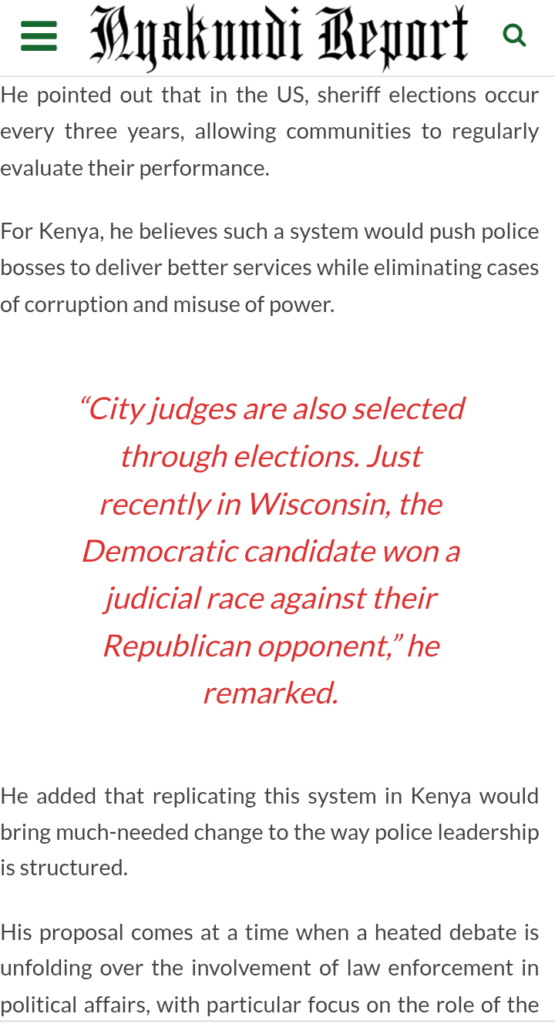
Wajackoyah’s proposal for elected police commanders is an attempt to address concerns about corruption and misuse of power within the police force.
It remains to be seen whether this proposal will gain traction among the Kenyan public or policymakers, but it has certainly added to the ongoing conversation about the future of law enforcement in Kenya.

















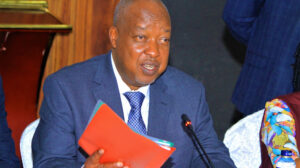



Add Comment